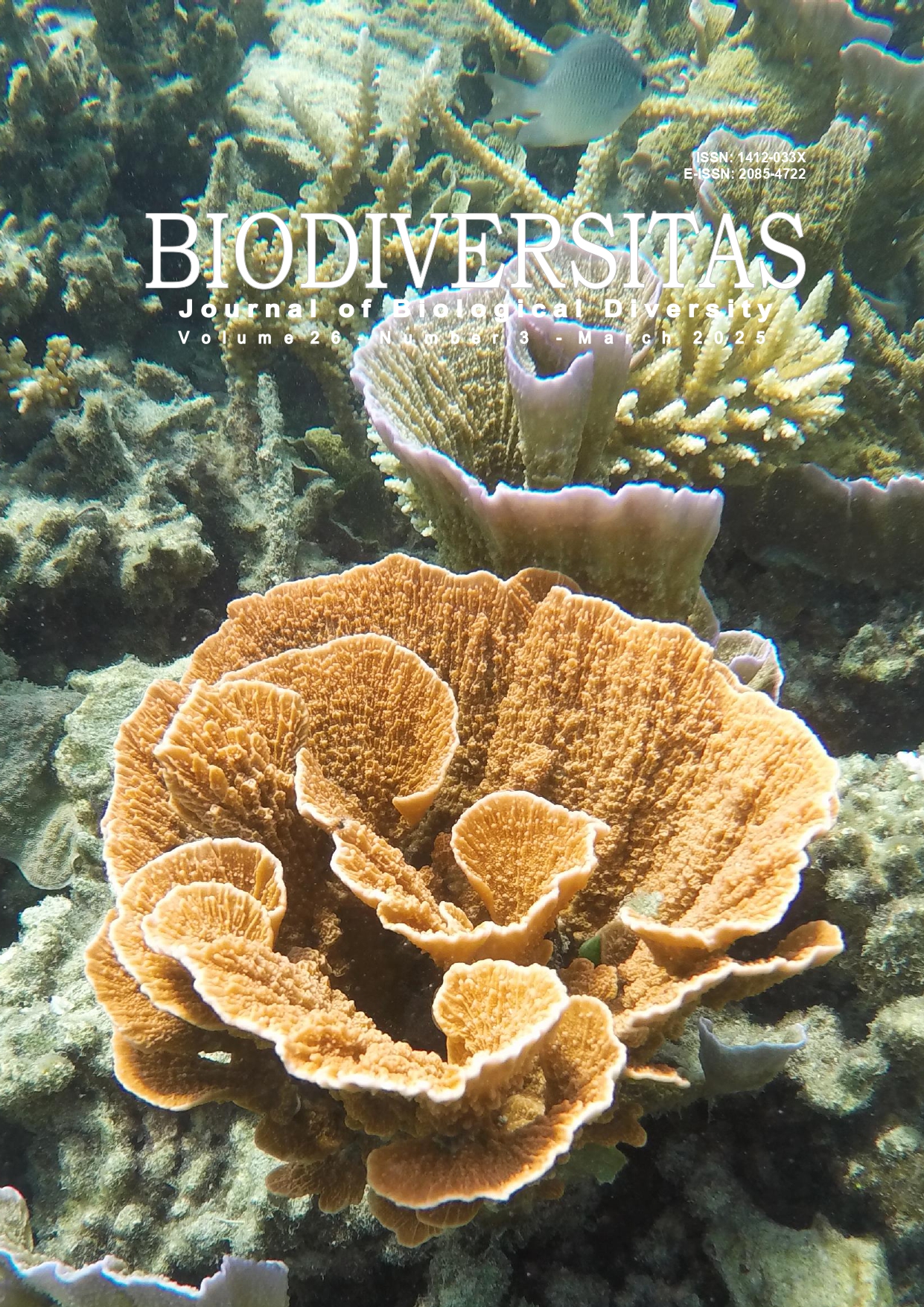Evaluating the utilization status of banana prawn (Penaeus merguiensis) in the Mukomuko Waters, Bengkulu, Indonesia
##plugins.themes.bootstrap3.article.main##
Abstract
Abstract. Erizal A, Wiyono ES, Taurusman AA, Zulkarnain. 2025. Evaluating the utilization status of banana prawn (Penaeus merguiensis) in the Mukomuko Waters, Bengkulu, Indonesia. Biodiversitas 26: 1164-1170. Since the 1980s, the prawn resources in the Mukomuko Waters (Sumatra, Indonesia) have been subject to exploitation through shrimp mini-trawling, causing high levels of pressure due to the intensive trawling in a relatively small fishing area. It is essential to implement appropriate management measures to ensure the sustainability of the prawn resources. The objective of this study is to assess the exploitation status of banana prawn (Penaeus merguiensis) in order to provide the basis for sustainable prawn management. A simple random sampling technique was employed to obtain a representative sample of the prawn stock. The sampled catch of P. merguiensis in Mukomuko Waters was predominantly female. The result of the relationship between length and weight species analysis demonstrates a negative allometric growth pattern. The Gonad Maturity Level (GML) of P. merguiensis was found to be dominated by GML II and GML III categories, indicating fish catch was developing virgin and maturing. Fishing mortality (F) was found to be higher than the natural mortality (M), with an exploitation rate (E) of 0.69. The Spawning Potential Ratio (SPR) was determined to be 0.20, further indicating that P. merguiensis in Mukomuko Waters is currently overexploited. Based on these findings, two management strategies are proposed: regulating the operation of shrimp mini-trawls based on the time and place of fishing activities and replacing shrimp trawls with more environmentally friendly fishing gear.

